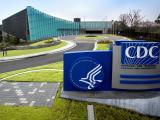Jun 3, 2008 (CIDRAP News) – Proposed pandemic preparedness guidance released by the federal government today recommends that people wear face masks if they have to go into crowds during an influenza pandemic and says critical infrastructure businesses should consider stockpiling antiviral drugs, among various other suggestions.
The guidance from the US Department of Health and Human Services (HHS) also spells out a role for preventive use of antiviral drugs in a pandemic but says that antivirals used preventively will have to come mainly from private stockpiles, because government stockpiles will be used mostly for treating the sick.
HHS released three draft guidance documents, covering the use of face masks and respirators by individuals and families, antiviral use during a pandemic, and considerations on antiviral drug stockpiling by employers. The agency is inviting public comments on all of them and says none as yet represents established policy.
Masks and respirators
The guidance on use of masks and respirators generally echoes advice issued by the Centers for Disease Control and Prevention in May 2007 but uses firmer language, changing "may" to "should" in several instances.
The document says the most important precautions for preventing flu are to limit close contact with others and use good hygiene. The specific recommendations on masks and respirators are as follows:
- Those who must go into crowded settings during a pandemic should wear a face mask to protect themselves from others' coughs and sneezes and to protect others from their own respiratory droplets. Even though most people out in public won't be sick, those who are infected can shed virus before they have symptoms, the guidance notes.
- Those who must have close contact with someone who has pandemic flu should wear an N-95 respirator certified by the National Institute of Occupational Safety and Health. N-95 respirators are devices that fit tightly to the face and are designed to stop 95 of small airborne particles.
- People sick with pandemic flu should wear a mask when they must be in contact with others.
The guidance suggests that it would be reasonable for each household to stockpile 20 respirators. In addition, people who have to commute on public transit might want to buy 100 face masks, plus some more for use in other crowded settings and at home. HHS estimates the cost of stockpiling the recommended number of respirators and masks at $35 to $70 per household.
The report notes that the Food and Drug Administration (FDA) has cleared many face masks, though none specifically for use by children. Also, the FDA recently cleared the first respirators intended for use by the public during a public health emergency such as a pandemic, it says. However, there are no respirators designed for children.
General guidance on antivirals
The proposed recommendations on use of antiviral drugs replace advice that was developed in 2005 as part of the HHS pandemic preparedness and response plan. The recommendations were prepared by an interagency group that included state, local, and tribal public health agencies as well as HHS.
Today's document comes a few weeks after the Institute of Medicine (IOM) said it was unclear whether the government's policy was to use antivirals only for treatment or for both treatment and prophylaxis. The IOM said the federal stockpile would have to be expanded if goals included providing preventive treatment for some people at risk in a pandemic.
The proposed guidance recommends prophylactic antivirals for several groups, but it says the supplies used for that purpose "will depend largely on private sector organizations and businesses purchasing and stockpiling antiviral drugs for their employees."
The document recommends that government antiviral supplies "be prioritized for treatment of all persons who may benefit from therapy," without attempting to put certain groups ahead of others. Further, it states, "Treatment is preferred to prophylaxis in settings of limited antiviral drug supply; targeting some antiviral drug supply for prophylaxis and prioritizing treatment for certain groups would raise significant ethical and logistical challenges."
The working group recommends that antivirals be used for:
- Containing initial pandemic outbreaks overseas and in the United States with treatment and post-exposure prophylaxis (PEP) for people exposed to the virus and those in areas where exposure may occur
- Reducing introduction of infection into the United States as part of control efforts at the borders
- Treating people with pandemic flu who seek care early in their illness and would benefit from treatment
- Prophylaxis for high-risk healthcare and emergency services workers
- Providing PEP for low-risk healthcare and emergency workers, immunocompromised people, and those living in group settings such as nursing homes and prisons
Further, the report says businesses that provide essential goods and services—critical infrastructure businesses—"should strongly consider antiviral prophylaxis for critical workers." Other employers may consider providing antivirals to protect their workers and maintain operations.
Employer stockpiling of antivirals
The guidance on antiviral stockpiling by employers underlines the recommendation that critical infrastructure employers should consider stockpiling, but it "does not establish the requirement or expectation that all employers stockpile antiviral drugs."
The document makes clear that employers generally won't be able to obtain antivirals from government stockpiles: "Despite expanding recommendations for antiviral drug use, there are no current plans for a commensurate expansion of public sector stockpiles, and employers will have to take the lead role for protection of their workforce if these recommendations are to be implemented."
The report says businesses may want to buy antivirals for the following purposes:
- To provide prophylaxis for frontline healthcare and emergency workers
- To protect workers who are needed to maintain essential community services
- To provide early treatment for workers who fall ill
- To protect overseas employees and operations in areas where federal pandemic response activities will not reach
See also:
May 3, 2007, CIDRAP News story "CDC offers advice on citizen use of masks, respirators"
Apr 25 CIDRAP News story "IOM: US likely to need bigger antiviral stockpile"




















